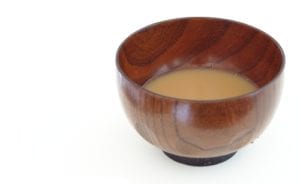Sobriety for most people involves total abstinence. No illicit or illegal substance can be used or abused for mind altering purposes. For some, the idea of giving up mind altering substances entirely is daunting. Sober support group meetings are typically accompanied by coffee, sugary treat such as doughnuts or cookies, and a cloud of smoke from cigarettes. Caffeine, sugar, and nicotine are methods of support for a recovering addict or alcoholic. Today’s beverage industry offers teas, energy drinks, and supplemented juices that can help someone catch an extra buzz. There are numerous other legal, even natural, substances which can create a mind-altered state.
What defines one substance from another as being harmful? Does drinking a chamomile tea which causes drowsiness count as a relapse? The answer is no. There are no clearly defined terms for what is and is not appropriate for sobriety. Some substances or drink are more concerning than others for the intensity of their mind-altering properties and their potential for abuse. Abuse, or using a substance in a way it is not intended, can be a hard line to draw as it is mostly subjective. Pain relievers relieve pain and calming teas create calm. Should they be avoided? Using a substance in higher quantities, all day long, or for avoidance, is abuse.
One substance causing controversy in the world of sobriety is Kava. Kava bars are opening up in local neighborhoods, offering a natural remedy to the day’s stress.
What is Kava?
Kava is a plant found in the south pacific known as a natural remedy for numerous afflictions. When consumed, Kava interacts with the central nervous system, making the effect quick and impactful. The effectiveness of Kava is not widely researched, so the side effects are vast. Kava negatively interacts with many medications and can worsen symptoms of mental health issues like depression. Often served as a tea, Kava can create dissociative feelings and uncomfortable calm. In large, abusive quantities, Kava can cause mild hallucinations.
Why Is Kava A Concern For Sobriety?
People in early recovery are drawn to kava for it’s powerful effect on calming their high nerves. Kava does not show up on a urinary test and has not yet been proven to cause dependency. However, the reliance upon a mood altering substance is problematic. Recovery is a process of learning to regulate and manage one’s emotional state without chemical support (other than a prescription). Many begin to rely on Kava out of habit and sensation, though not out of chemical dependency. However, the brief sense of euphoric relief brought on by Kava can be enough to stimulate memories in the brain associated with using. Eventually, the kava might not be substantial in curing the ailments relief is being sought for. Other substances might come to mind. Without the tools in place to act as defense, relapse becomes imminent.
Avalon By The Sea advocates total abstinence in sobriety. Our treatment program for substance use disorders is housed in a warm, private, luxury environment while offering quality evidence based care. For a confidential assessment or more information on our programs, call 1 (888) 958-7511.











